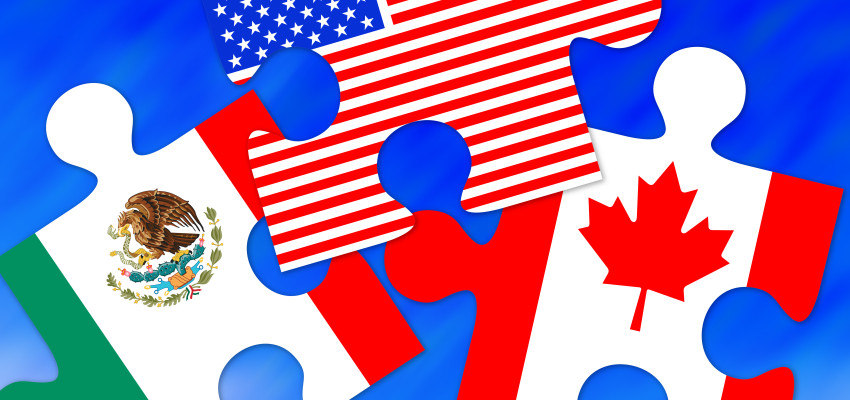By Hannah Becker on May 7, 2018
3 Reasons NAFTA Matters to All of US
Even if you're not a farmer

Chances are, you’ve heard something about the North American Free Trade Agreement, or NAFTA, in the news over the past few months:
The U.S. is staying in NAFTA.
The U.S. is pulling out of NAFTA.
The U.S. is renegotiating NAFTA.
While you may have heard the acronym, you may not realize this international agreement affects you and your family.
What is NAFTA, anyway?
The North American Free Trade Agreement is a treaty between three nations – Canada, Mexico and the United States. It has some distinction as the largest free trade agreement in international history and was also the very first trade arrangement between an emerging economy and two developed markets.
In the 1980s, President Ronald Reagan drafted the idea of NAFTA with the hope of alleviating the recession at the time; but it took a while to get NAFTA off the ground. President George H. Bush negotiated the agreement, while President Bill Clinton signed the history-making treaty.
Basically, NAFTA was created to remove trade barriers (like tariffs) between North America’s three big economic players, allowing participating nations to more easily import and export their goods and resources. NAFTA helped keep prices of essential goods, like food and oil, relatively low; however, the agreement also encouraged formerly U.S.-based manufacturing companies to relocate to Mexico.
Like most trade agreements, NAFTA presents both advantages and disadvantages, hence the proposed “renegotiation.”
How does NAFTA affect the U.S. economy?
The creation of NAFTA provided an economic boost to all three countries involved, quadrupling trade activity over the two decades that followed.
NAFTA has helped keep both groceries and fuel prices low for American consumers, thanks to imports and the dissolution of tariffs. This has helped American consumers keep their cost of living relatively low while having increased access to international goods. Additionally, NAFTA increased the exportation of American goods and services, providing economic growth to a variety of U.S.-based industries.
How will NAFTA continue to affect consumers?
Shortly after assuming office, President Donald Trump announced his administration would be renegotiating the terms of NAFTA. President Trump has repeatedly threatened to withdraw the United States from NAFTA participation should his administration’s demands not be met. These threats regarding our nation’s foreign policy have sparked conversations with economists, industry leaders and media personalities.
If the United States withdraws from NAFTA, the economic fallout would affect the pocketbooks of many consumers. Economists predict that a NAFTA withdraw would limit American exports, cause job loss, shrink the economy and even cause price increases in everyday essentials like cars, food and gasoline. Agrarian states like Kansas could experience reduced international trade opportunities that are essential to our state’s economy.
Trade agreements like NAFTA help connect American businesses and consumers with affordable products necessary to maintain a high quality of life. Foreign policy renegotiations and threats of withdrawal can put our economy at risk of instability and potentially cause loss of opportunities. While NAFTA-related news may seem worlds away, its renegotiation outcomes have the potential to affect every American consumer.


